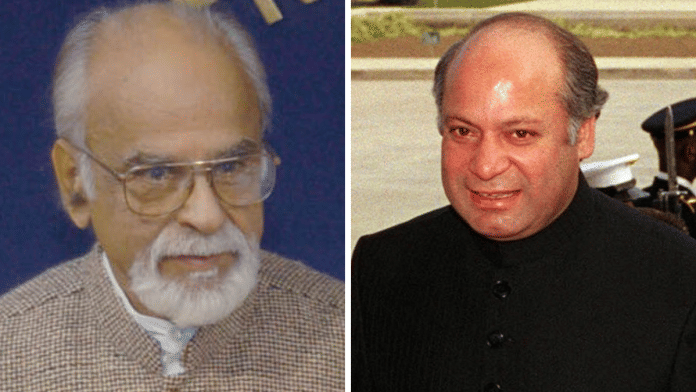The arrival of the South Asian heads of state in Male marked the end of the league phase of the ninth SAARC (South Asian Association Regional Cooperation) summit.
Actually, there was never any doubt as to the final line up. the business of SAARC summitry has always been a sideshow for India-Pakistan talks. But never since the 1988 Rajiv-Benazir “honeymoon” summit, so heady and finally so disastrous, have expectations been raised to such a pitch. That is why it is important to read the bad news right now: don’t expect any earth-shattering breakthroughs just now.
The good news, however, is that nobody is expecting breakthroughs of the kind promised in 1988. The new catchphrase is a step-by-step solution. And if this step merely results in the two leaders agreeing to meet again soon and their respective spokesmen not ending up calling each other names it will be seen as a gain.
The political and security environment in the subcontinent is today more suitable for a resolution now than in 1988: The Pakistani democracy is stronger and the leadership more confident; India has discovered the confident self-belief of a country that always took pride in its ability to defeat internal conflicts. Shadow of Khalistan is a forgotten nightmare, and Kashmir, if the rapidly dropping level of combat there is any indication, seems to be on the mend. Both countries are rapidly reforming their economies and would prefer not to be distracted by old blood feuds. But the most important difference between 1997 and 1988 is that the key interlocutors today are no romantics either in terms of their diplomacy or mutual chemistry.
So don’t expect, this time around, leaders addressing a joint press conference stealing furtive, shy glances, exchanging blushes and sharing sweet nothings.
It may not be a fashionable notion in India but if this summit has a more realistic chance of succeeding, though in a limited sense, it is because since Zia-ul-Haq’s days it is the first time India will be dealing with a Pakistani leader who is in control. He cannot barter Kashmir away, nor even talk of settling along the Line of Control. But possibly, and hopefully, he won’t have to worry now about his own army and intelligence bugging the room where the talks are held and then releasing the tapes to his political rivals.
The notion that is indeed fashionable in India, of a weak Gujral leading a fractious coalition and desperate to show gains for his own new foreign policy doctrine giving away too much too soon, fortunately, is misplaced. The limitations the political situation in India creates also gives Gujral the negotiating space.
He can, and most likely will, tell Nawaz Sharif to wait and be patient. That a coalition, as he must know from his own experience, makes it impossible for its leader to take major decisions in a hurry. So why not begin with the more possible things instead, like opening up trade, people-to-people contact, a real agreement on not bashing up diplomats, on suspending the sickening old game of competitive cussedness?
It is difficult to promise Sharif will listen. He too will be surrounded by old Cold Warriors from his own foreign office who would continue to remind him that Kashmir is the core issue, that any other way to treat the disease is akin to mere aspirin therapy for a disease defying cure for a half century.
But look at the stakes Sharif has in this summit. He ran, and won, a whole election campaign without mentioning Kashmir not because he has become a peacenik. He did it because he knew that if he had to become a real prime minister he had to defang the army, the power of the Eighth Amendment that it exercised through the President and he wasn’t going to be able to do it on a politically sustainable basis until Kashmir was taken off the frontburner. He is not about to give away Pakistan’s claims on Kashmir. But he would prefer if his own extra-parliamentary establishment is denied its greatest leverage within his country’s power structure.
Already the build-up to this summit, the league phase, has been qualitatively different from any in the past. It is the undoubtedly the first summit where India has not been isolatedly fighting at least four of the remaining six (with the customary exception of Bhutan and Maldives) simultaneously. Slowly, diplomacy in South Asia too is acquiring a strong trade and economic dimension and the idea of sub-regional groupings, driven by economics and isolating Pakistan as it has so far refused to play along with the move towards a common trading zone has already caused consternation in Islamabad.
The new mood among the Bangladeshi, Nepalese and the Sri Lankan delegations is a tangible gain from the Gujral Doctrine. It doesn’t automatically follow that the tactics will play out exactly the same way with Pakistan. But when the subcontinent’s first ever Punjabi summiteers meet in its most expensive and exotic beach resort at Kurumba (coconut) island tomorrow, the topmost question on their minds will be the same now to sidestep Kashmir without letting the people back home know and get on with the business.
Also read: SCO, BRICS, RIC: What do they have in common? China at head of table, India faking smiles






